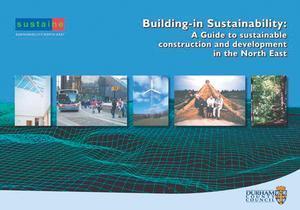Durham County Council
This council has produced a guide to help the North East region move towards a more sustainable future. Produced by Durham County Council with its regional partners, ÐÇ¿Õ´«Ã½ in Sustainability: A guide to sustainable construction and development in the North East, is a 130 page document covering issues such as reusing buildings and land, designing for minimum waste, giving people transport choices and making a commitment to sustainable regeneration. The judges liked this holistic approach and the way that the council had used real background data to produce an effective guide. They commented that it is "practical, useful and proved that a council could deliver sustainability beyond its own building stock".
Runners up
BTU (Heating)BTU installed and commissioned the first fuel cell combined heat and power system in the UK on behalf of Woking Borough Council at the Woking Park Leisure Complex. BTU has embraced technologically advanced energy saving and environmentally friendly systems.
Balfour Kilpatrick
Judges admired the way in which this organisation has set out to improve environmental performance by initiatives designed to involve and empower employees. Methods included introducing a multi-disciplinary environmental steering committee; publishing company environmental policy on the company internet site; communication of objectives at all levels of the organisation.
Grundfos Pumps
Grundfos believes strongly that when it comes to sustainability, actions speak louder than words. The company has committed itself to reducing the power consumption of pumps with heavy investment in research and development. This has resulted in new products such as the Alpha and Magna, and energy savings of up to 60% and material reductions of up to 17% compared to the products they replaced. Grundfos believes strongly that it is a global resident, and must leave the world in a better condition for future generations.
Max Fordham LLP
The judges recognised this consultancy's work on the UK headquarters for the SAS Institute. The client was eager to minimise environmental impact and Max Fordham engineers rose to the challenge, using techniques such as casting an extensive array of chilled water pipework into the heavyweight concrete soffit, and water conservation techniques.
Source
ÐÇ¿Õ´«Ã½ Sustainable Design


















No comments yet